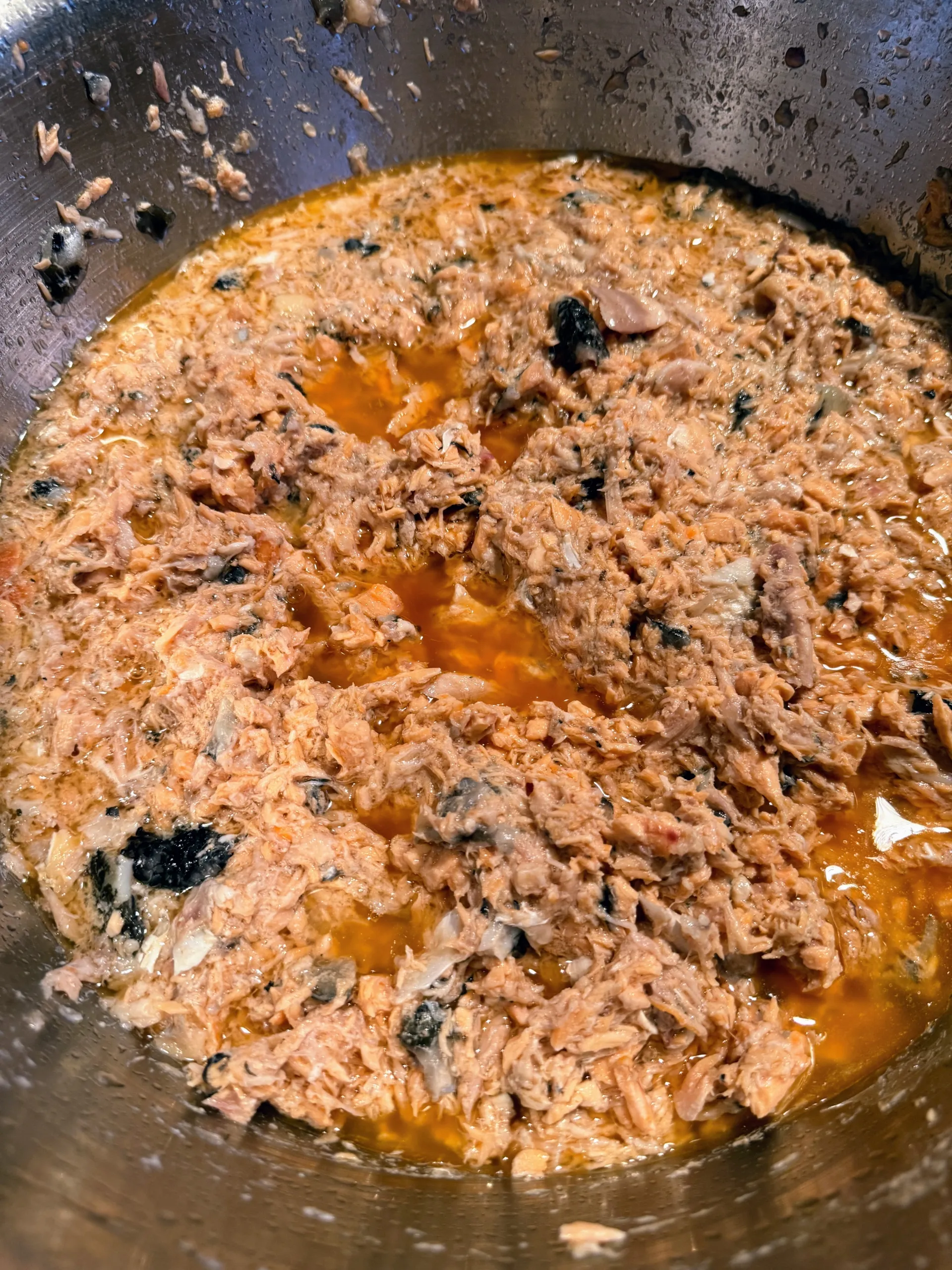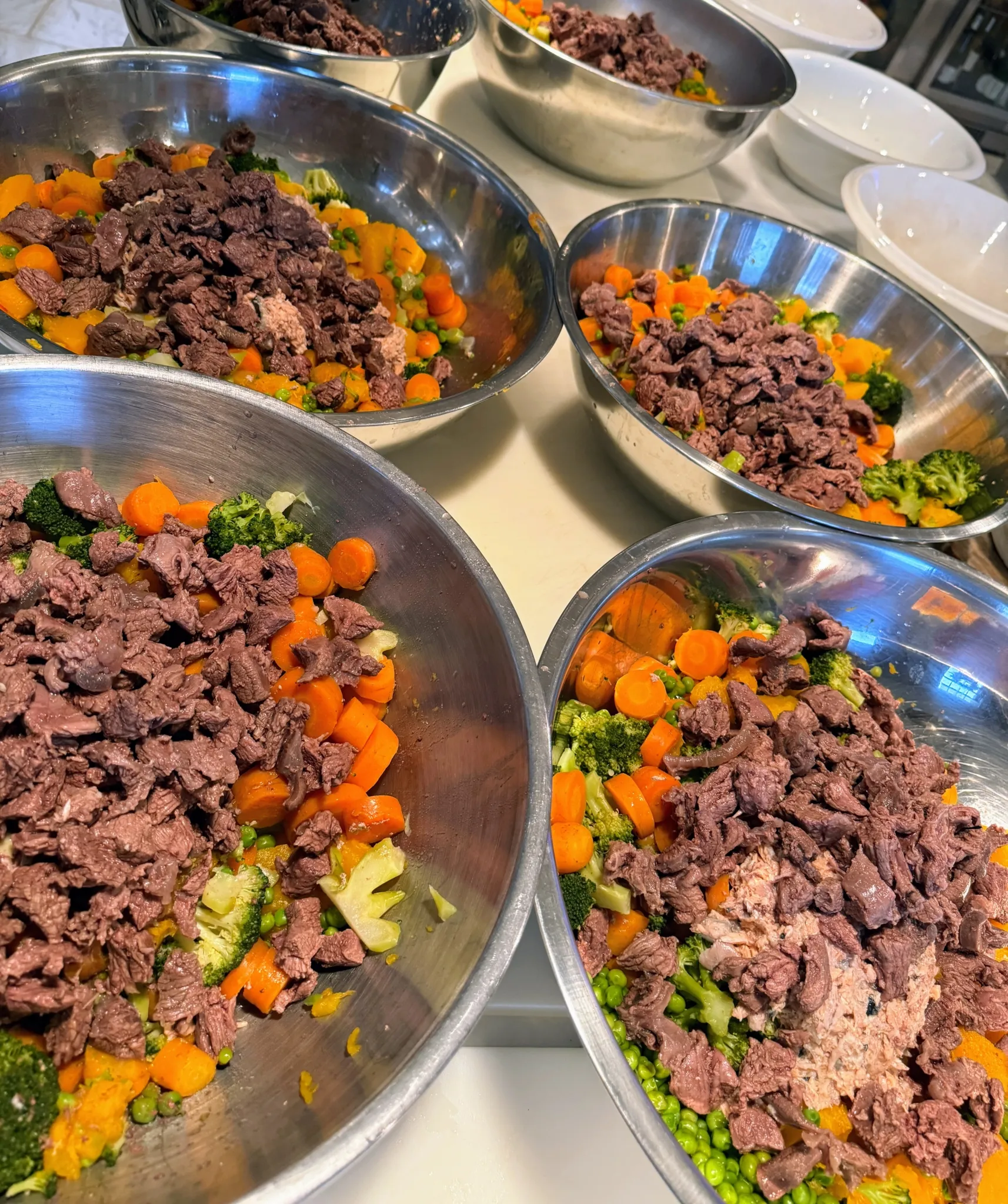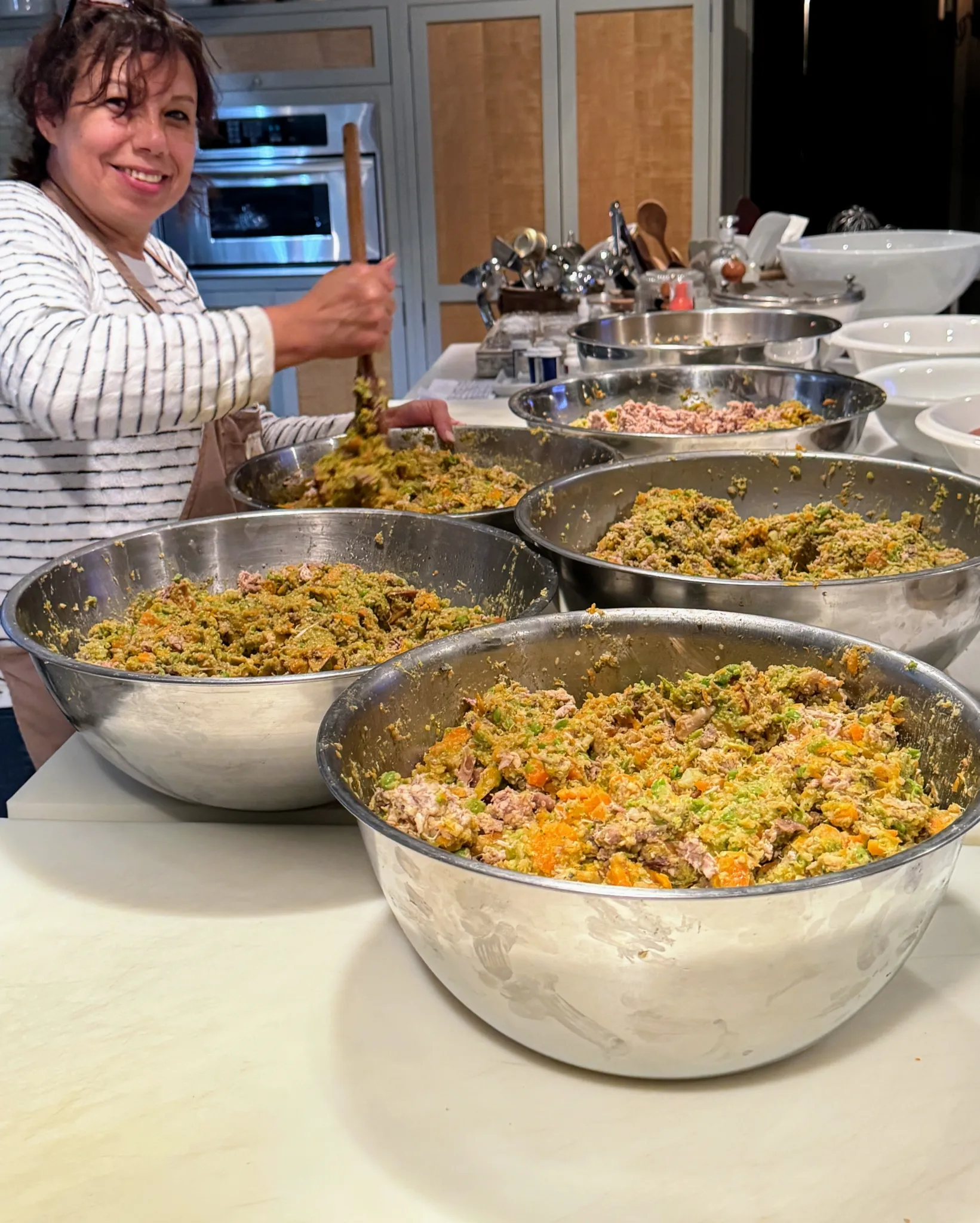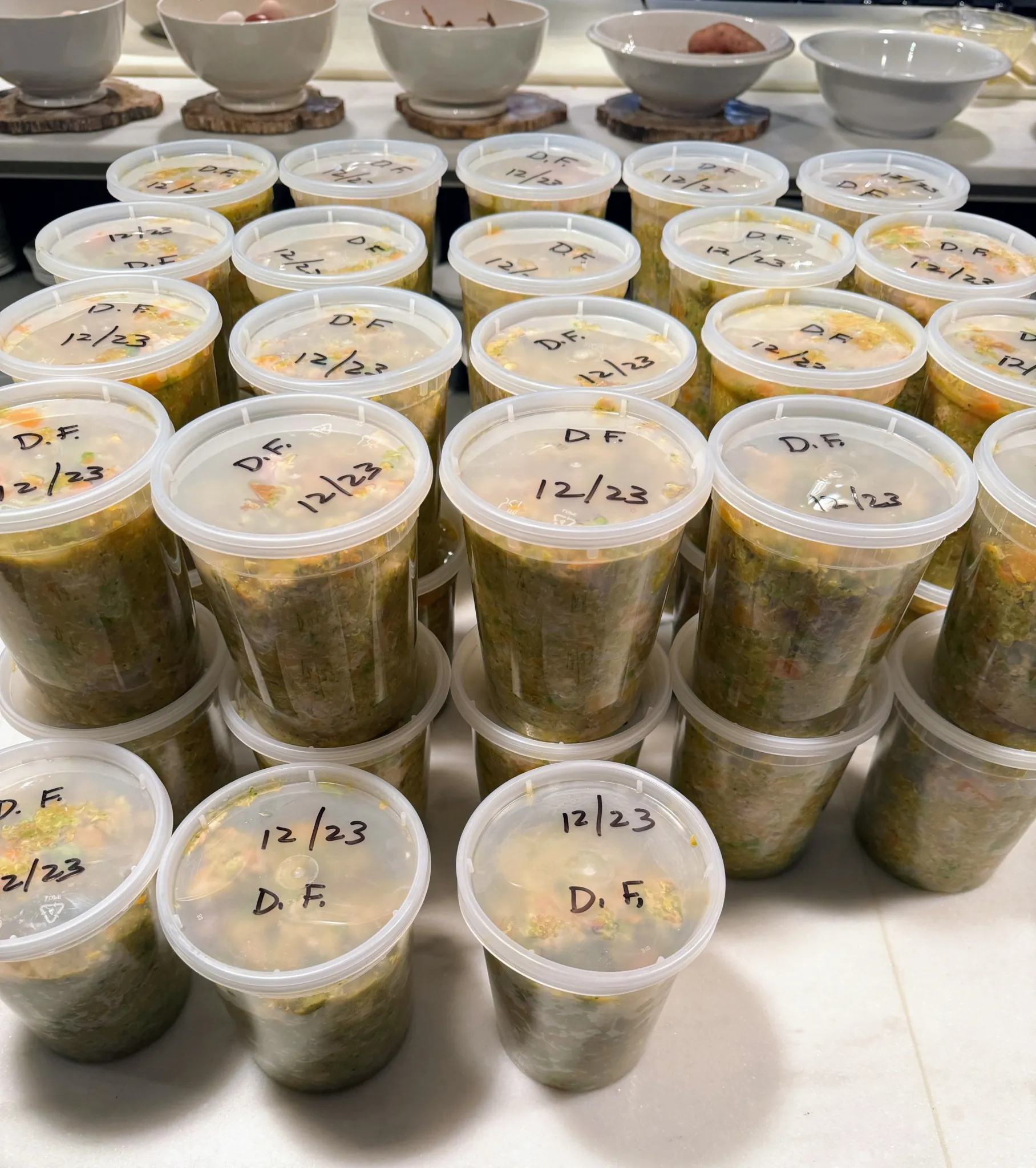Every dog owner wants to provide the absolute Best Home Cooked Food For Dogs, ensuring their furry companions lead long, healthy, and happy lives. Just like humans, pets thrive on nutritious, well-balanced meals. The idea of preparing your dog’s food from scratch can seem daunting, but it offers unparalleled control over ingredients, allowing you to avoid preservatives, artificial additives, and fillers often found in commercial pet foods. This personalized approach to canine nutrition ensures your beloved pets receive exactly what they need, tailored to their individual health requirements and taste preferences. Embracing homemade meals can transform your dog’s diet, contributing significantly to their overall well-being and vitality.
For those considering the commitment to homemade meals, it’s worth noting the profound impact it can have, especially on dogs with sensitive stomachs or specific dietary needs, including some of the senior dogs to adopt near me. Providing a diet rich in whole, organic, and locally sourced ingredients can make a noticeable difference in their energy levels, coat health, and even their enthusiasm at meal times.
Why Choose Homemade Dog Food? Unlocking Nutritional Benefits
Opting for homemade dog food goes beyond just cooking for your pet; it’s a conscious decision to enhance their health through superior nutrition. The primary advantage lies in having complete oversight of every ingredient that goes into their bowl. This means you can select high-quality, organic, and ethically sourced meats and vegetables, ensuring your dog consumes a diet free from the unknowns of processed kibble. This transparency is particularly crucial for pet parents concerned about food sensitivities or allergies.
Moreover, preparing meals at home allows for incredible dietary variety. While commercial foods often stick to a limited set of ingredients, homemade diets can rotate proteins, vegetables, and grains, providing a broader spectrum of vitamins, minerals, and antioxidants. This varied intake can boost their immune system, improve digestion, and contribute to a shinier coat and healthier skin. The satisfaction of knowing you’re providing the most wholesome meal possible for your canine companion is a reward in itself. For dog owners looking to support the health of an older pet, especially when considering senior dogs up for adoption, a tailored homemade diet can be incredibly beneficial.
Essential Ingredients for a Balanced Canine Diet
Crafting the best home cooked food for dogs involves a careful selection of ingredients to ensure a complete and balanced nutritional profile. A diverse mix of quality proteins, nutrient-rich vegetables, and healthy grains or carbohydrates is key.
High-Quality Proteins
Proteins are fundamental for muscle development, repair, and overall health. The original recipe featured salmon and venison, both excellent choices.
- Salmon: A fantastic source of Omega-3 fatty acids, which support brain function, joint health, and a glossy coat. When preparing salmon, it’s crucial to thoroughly cook it and meticulously remove all bones to prevent choking hazards or internal injuries. Even if you plan to process the food, checking for bones beforehand is a vital safety step.
- Venison: Lean and rich in protein, venison is an ideal alternative for dogs with sensitivities to more common meats like chicken or beef. Its unique flavor also adds exciting variety to your dog’s diet.
Other excellent protein sources include lean ground beef, turkey, chicken (without skin or bones), and eggs.
Nutrient-Rich Vegetables
Vegetables provide essential vitamins, minerals, and fiber, crucial for digestive health and overall vitality. The original recipe incorporated a wonderful selection of vegetables:
- Broccoli: A powerhouse of vitamins C and K, and fiber. Ensure it’s boiled until tender and cut into small, digestible pieces.
- Carrots: Low in calories, high in fiber, and packed with Vitamin A, which is great for vision. They can be cooked or occasionally given raw in moderation for dental health.
- Green Peas: A good source of B vitamins (Thiamin), phosphorus, and potassium. They cook quickly and should not be overcooked.
- Pumpkin: Excellent for digestive health, rich in fiber and beneficial for both constipation and diarrhea.
- Sweet Potatoes: High in dietary fiber, low in fat, and contain vitamins B6, C, manganese, and beta-carotene. They are a fantastic source of sustained energy and antioxidants.
Always thoroughly cook vegetables and cut them into appropriate sizes to prevent choking and aid digestion. Avoid vegetables known to be toxic to dogs, such as onions, garlic, and wild mushrooms.
 Cooked salmon, carefully checked for bones before being added to the dog food mixture.
Cooked salmon, carefully checked for bones before being added to the dog food mixture.
Wholesome Grains and Carbohydrates
Carbohydrates provide energy and dietary fiber.
- Quinoa: An excellent gluten-free superfood, offering high levels of essential amino acids and protein. Due to its high protein content, quinoa should be given in small amounts to avoid overfeeding protein, which can be taxing on a dog’s kidneys. Always ensure it is well-cooked and offered in moderation as part of a balanced diet.
Other healthy grain options include brown rice or oats, cooked thoroughly.
Beneficial Dairy (in moderation)
- Yogurt: While many dogs are lactose intolerant, plain, unsweetened yogurt (especially homemade) can be easier to digest due to its beneficial bacteria. It can support gut health and add moisture to meals. Always introduce new dairy products slowly to observe your dog’s reaction.
Preparing and Storing Your Dog’s Meals
The process of preparing homemade dog food involves several steps, from cooking individual ingredients to mixing and portioning for storage. This ensures convenience and maintains the freshness of your carefully prepared meals.
Cooking and Combining Ingredients
Start by cooking each ingredient appropriately. Vegetables should be steamed or boiled until tender, and meats cooked thoroughly. Once all components are prepared, combine them in large stainless steel bowls. This allows for easy mixing and ensures that all ingredients are evenly distributed throughout the batch. The aim is to create a homogenous mixture where every scoop offers a balanced meal.
 A large batch of diverse, prepared dog food ingredients, including venison.
A large batch of diverse, prepared dog food ingredients, including venison.
The Role of a Food Processor
For many dogs, especially those with dental issues or picky eaters, a finer texture is preferred. Running the entire batch through a food processor helps achieve a consistent, ground consistency that is easier for dogs to eat and digest. This step, while seemingly extra, can significantly improve your dog’s enjoyment of their meal and ensure they get all the nutrients without having to chew large chunks.
 Elvira mixing the processed dog food before portioning into storage containers.
Elvira mixing the processed dog food before portioning into storage containers.
Portioning and Storage
Efficient storage is crucial for maintaining freshness and convenience. Quart-sized containers are ideal for portioning, allowing for quick and efficient meal preparation. After filling, let the food cool completely before securing the lids. Each container should be labeled with the contents and preparation date. For freezing, only fill containers to the first line to allow for expansion, preventing cracked containers. This organized approach ensures you always have a ready supply of delicious, nutritious meals for your dogs.
 Forty-four filled and labeled containers of homemade dog food, ready for storage.
Forty-four filled and labeled containers of homemade dog food, ready for storage.
Serving Homemade Dog Food for Optimal Health
Once your homemade dog food is prepared and stored, the final step is serving it in a way that maximizes nutritional intake and digestive health.
Combining with Kibble and Supplements
Many dog owners choose to use homemade food as a topper or mixer with high-quality kibble. This approach offers the benefits of both worlds: the complete nutrition of commercial kibble, often fortified with essential vitamins and minerals, combined with the fresh, wholesome goodness of your home-cooked ingredients. Adding a small amount of water or homemade whey from yogurt can moisten dry kibble, making it more palatable and easier to digest. This also allows for the easy incorporation of any veterinarian-recommended supplements, ensuring your dog receives all necessary nutrients for optimal health.
 A spoonful of homemade yogurt, a digestive aid, added to a dog's meal.
A spoonful of homemade yogurt, a digestive aid, added to a dog's meal.
Establishing a Feeding Schedule
Just as important as what you feed your dog is when you feed them. Splitting daily meals into two servings—one in the morning and one in the evening—is generally recommended for better digestion and to prevent overeating. This consistent schedule helps regulate their metabolism and digestive system, contributing to overall well-being. Always observe your dog’s appetite and energy levels to adjust portion sizes as needed, and consult with your veterinarian to ensure their diet meets all their specific needs. Understanding their dietary requirements is as crucial as finding a dog grief support group for emotional well-being.
Conclusion
Preparing the best home cooked food for dogs is a rewarding endeavor that offers numerous benefits for your canine companions. From complete control over ingredients and the avoidance of harmful additives to providing a diverse and nutrient-rich diet, homemade meals contribute significantly to your dog’s health and happiness. While it requires a commitment of time and effort, the visible improvements in their vitality, coat condition, and overall demeanor make it a worthwhile investment. Always remember to research what your pet needs and consult with a veterinarian or a canine nutritionist to ensure their homemade diet is perfectly balanced and meets all their individual health requirements. Your dog will undoubtedly relish every delicious, lovingly prepared meal, reinforcing the special bond you share.
